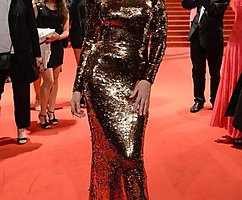Why not say in advance about their plans
 Bashny.Net
Bashny.Net
Lose weight. Learn English. Run every morning. Every time we set a new personal goal, we share this news with your friends, parents and colleagues. We tell them that we are going to do so-and-so. Or happily inform you that have already begun to do so.
Then, in 95% of cases, it turns out that is not communicated to the end started. Why not speak in advance about their plans? And why often the goals are achieved, which we did not tell anyone?

An interesting experiment
German psychology professor Peter Golvittser studying this phenomenon for over 15 years. Once he had an interesting experiment. As the experimental mice Golvittser selected group of law students of the University. The purpose of the experiment: to find out whether the affected public statements about his intentions to achieve personal goals
. To this list Golvittser made statements like, "I'm going to take as much as possible from a legal education", "I'm going to become a successful lawyer," and so on. Each of the statements, students were asked to rate on a scale from "Strongly Agree" to "Strongly Disagree".
The survey was conducted anonymously. If desired, you could write your name. Also, in the questionnaires the students were asked to list three specific things that they are going to do to become a successful lawyer. Typical answers were: "I intend to regularly read the legal periodicals" or something like that
. When the students have passed the questionnaire, Peter Golvittser found that most of the students answered questions and signed his name. Some do not complete the questionnaire and kept their intentions secret.

Those who kept their intentions secret ...
The students did not know what their intentions are to check in practice. They surrendered their profiles and forgot about it. But researchers led by Peter Golvittserom something conceived ...
Psychologists have waited a while and then artificially created a situation to test the respondents "for lice" :-) They asked students to help them in the project, which required the analysis of twenty criminal cases. Students are told that they have to work as hard as they can. At the same time, everyone has a right to "score" for help and leave at any moment.
Criminal cases were difficult. They demanded the inclusion of the brain to its fullest, and perseverance. The experimental results have been mixed. Anyone who publicly announced their intentions in the questionnaire for the future, "merged" with the work. They shied away from achieving this goal. This is despite the dedication to build a career in law!
Only those who have kept their hopes with them, could really do the hard work, and to follow through.
Why do people tell others about your intentions?
Golvittser believes that this has to do with a sense of identity and integrity. We all want to be perfect people. But statements about our intentions and hard work hard, often, are purely symbolic act. It's just helping us to gain independence with its role. For example: "I am a lawyer," "I'm a writer," "I'm a photographer," "I am a programmer"
. But Peter insatiable Golvittser conducted another experiment to further verify the correctness. Students are shown five pictures of the Supreme Court. Photos of different sizes. From very small to very large. Subjects were asked: "How do you feel cool lawyer today?"
Subjects were asked to rate their coolness and answer the question by selecting one of five photos. The more photos you choose, the more complete feeling.
No one was surprised when the students, who had previously announced their goals and failed in practice, tended to choosing more photos. Even the mere statement of its plans to become a good lawyer, made them feel as if they were good lawyers. This has increased their self-esteem, paradoxically reducing their ability to work hard. They became legends in their imagination. A legend do not dusty and dirty work.
So, talk less and do more, reaching the top!
Then, in 95% of cases, it turns out that is not communicated to the end started. Why not speak in advance about their plans? And why often the goals are achieved, which we did not tell anyone?

An interesting experiment
German psychology professor Peter Golvittser studying this phenomenon for over 15 years. Once he had an interesting experiment. As the experimental mice Golvittser selected group of law students of the University. The purpose of the experiment: to find out whether the affected public statements about his intentions to achieve personal goals
. To this list Golvittser made statements like, "I'm going to take as much as possible from a legal education", "I'm going to become a successful lawyer," and so on. Each of the statements, students were asked to rate on a scale from "Strongly Agree" to "Strongly Disagree".
The survey was conducted anonymously. If desired, you could write your name. Also, in the questionnaires the students were asked to list three specific things that they are going to do to become a successful lawyer. Typical answers were: "I intend to regularly read the legal periodicals" or something like that
. When the students have passed the questionnaire, Peter Golvittser found that most of the students answered questions and signed his name. Some do not complete the questionnaire and kept their intentions secret.

Those who kept their intentions secret ...
The students did not know what their intentions are to check in practice. They surrendered their profiles and forgot about it. But researchers led by Peter Golvittserom something conceived ...
Psychologists have waited a while and then artificially created a situation to test the respondents "for lice" :-) They asked students to help them in the project, which required the analysis of twenty criminal cases. Students are told that they have to work as hard as they can. At the same time, everyone has a right to "score" for help and leave at any moment.
Criminal cases were difficult. They demanded the inclusion of the brain to its fullest, and perseverance. The experimental results have been mixed. Anyone who publicly announced their intentions in the questionnaire for the future, "merged" with the work. They shied away from achieving this goal. This is despite the dedication to build a career in law!
Only those who have kept their hopes with them, could really do the hard work, and to follow through.
Why do people tell others about your intentions?
Golvittser believes that this has to do with a sense of identity and integrity. We all want to be perfect people. But statements about our intentions and hard work hard, often, are purely symbolic act. It's just helping us to gain independence with its role. For example: "I am a lawyer," "I'm a writer," "I'm a photographer," "I am a programmer"
. But Peter insatiable Golvittser conducted another experiment to further verify the correctness. Students are shown five pictures of the Supreme Court. Photos of different sizes. From very small to very large. Subjects were asked: "How do you feel cool lawyer today?"
Subjects were asked to rate their coolness and answer the question by selecting one of five photos. The more photos you choose, the more complete feeling.
No one was surprised when the students, who had previously announced their goals and failed in practice, tended to choosing more photos. Even the mere statement of its plans to become a good lawyer, made them feel as if they were good lawyers. This has increased their self-esteem, paradoxically reducing their ability to work hard. They became legends in their imagination. A legend do not dusty and dirty work.
So, talk less and do more, reaching the top!
Tags
Personal development
psychology
women
men
relationships
life
happiness
harmony
love
children
money
wealth
success
See also
What men need to know about women.
Poverty Scenario: find out why not encourage your child to share toys
If a woman conceals his soul - it does not give the man any chance
5 SIGNS AND EFFECTIVE HAPPY FAMILY
Most tactless question asked by women
TREE OF ANGELS.
As you say, so that you and lives
LEARN TO SPEAK LOW
As you say, and so you live
10 things about which YOU MOTHER NEVER TOLD

















